Coimbatore: A marigold and rose pinned to her oiled braid, Ashwani Naik weaves through a line of women bent over their sewing machines. As the machines whir and click, Naik murmurs American poet Robert Frost’s poem under her breath: “Two roads diverged in a wood, and I—I took the one less traveled by.”
Naik is a line supervisor at a garment mill by day and an English literature student by evening. From the factory floor to the classroom, the women she supervises at work become her classmates in the after-hours. And these classes are conducted right inside the KPR Mill’s premises. This Tamil Nadu factory floor in Tiruppur is a college campus unto itself – an ambitious social outreach in the three-decade-old hosiery export hub.
“Four years ago, I never thought I would graduate. Today, I am working, earning, and studying—all in the same place,” said Naik, her bindi, and the white mark beneath it, lending her the appearance of a Tamil woman. She belongs to Odisha.
Tucked in a quiet corner of the industrial hub on Coimbatore-Tiruppur Road in Tamil Nadu, the apparel manufacturing unit of KPR Mill sits on a sprawling campus that doubles as an academic institution.
I was very conservative before, but now I believe in education and independence for women. I guess that’s why families don’t let women study—they fear that once women know their rights and their place in society, it will be difficult to cage them – Pranatee Dalai, KPR Mill worker
The women who stitch garments for H&M, Marks & Spencer, and Decathlon in the day weave dreams of graduating in the evening – driven by a staff of 80 teachers.
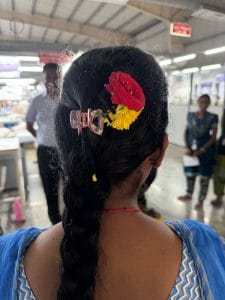
The mill’s in-house academic initiative, named the Women’s Employment Education Division, has drawn women from across India—Uttar Pradesh, Odisha, Chhattisgarh, and Jharkhand. Over the years, these women have learned Tamil, made friends in classes and hostel rooms, and savoured South Indian staples in the mess. They read RK Narayan and Jane Austen, and learn about the Victorian Era.
Set up by industrialist KP Ramasamy in 1998, it initially focused on Class 10 and 12 curriculums. Over time, the ambit expanded to include graduation courses—which now amount to over 10. The courses teach yoga, nursing, computers and other disciplines.
“It was during a visit by my father KP Ramasamy in the ‘90s at the mill that a girl cried in front of him and expressed her desire to study. It affected my father deeply since he was also from a poor agricultural family. And that’s when it struck him – why can’t we educate these girls?” said CR Anandkrishnan, Ramasamy’s son and the Executive Director of KPR Mill.
Since then, over 41,000 women have graduated from the mill, said Anandkrishnan. Hundreds of these women have left to chart new paths at IT companies, with a few of them even moving abroad. These women work eight-hour shifts at the factory before heading straight to four-hour classes. Their education is free of cost, and they don’t have to pay for hostel and food either.
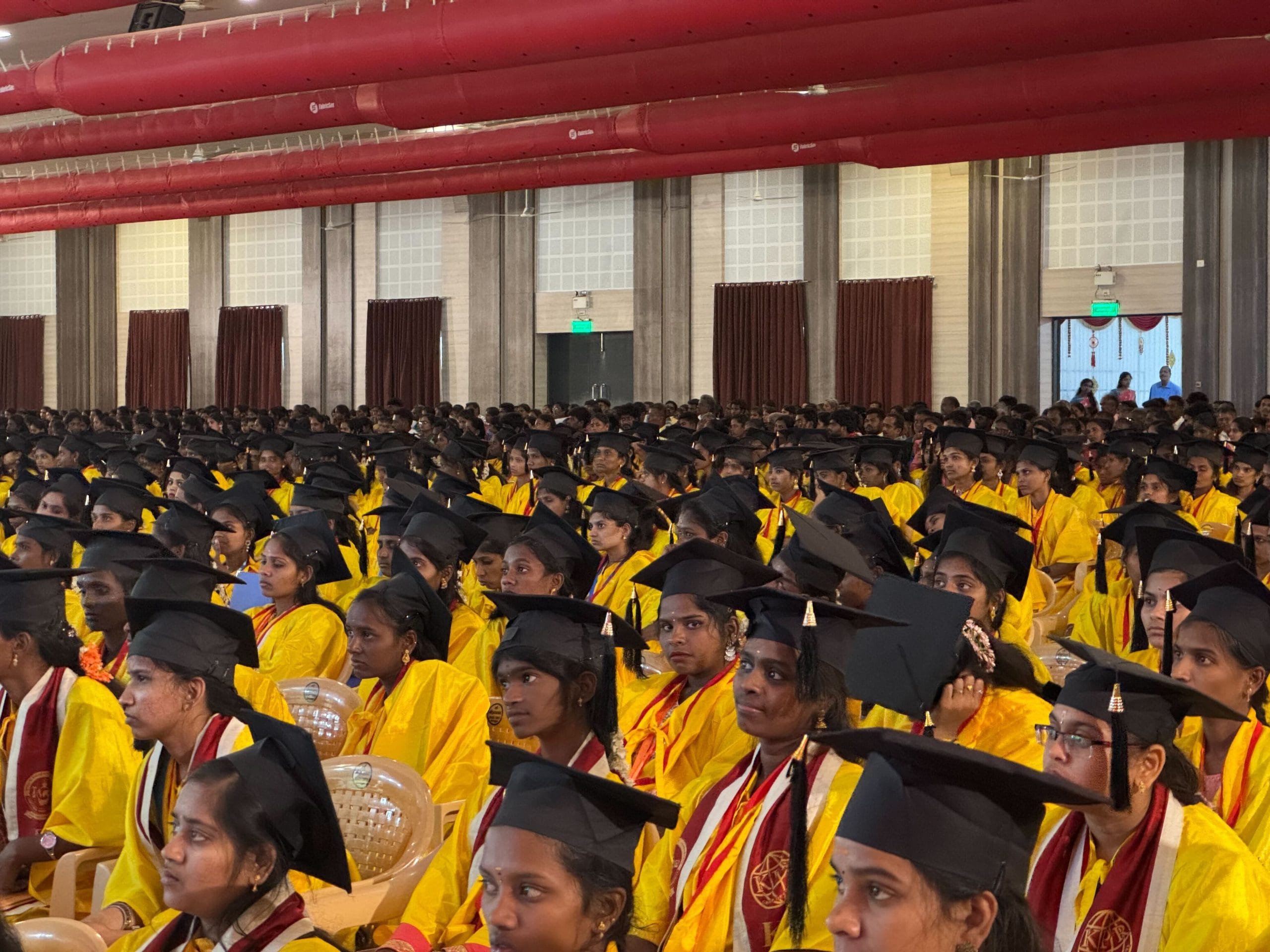
At the institute’s 11th convocation ceremony last week, over 579 women graduates walked the stage before Tamil Nadu’s two education ministers, sporting Oxford caps and black gowns while flaunting their degrees.
“When a woman who is also a mill worker leaves after graduating, we don’t see it as a loss but as progress for her—we helped her take a step up the professional ladder,” said Anandkrishnan.
‘A world of our own’
It’s a Sunday, and the mill premises buzz with women. Some talk on the phone, while others stroll in the garden with their friends. There is a sense of camaraderie in the air, the usual hum of the factory fading into the background. With its line of in-house eateries, garment stores, and mobile recharge shops, the place almost resembles a hostel at a regular college campus.

“This is our small world brimming with women,” said 24-year-old Pranatee Dalai, laughing.
Dalai started working at the mill in 2021 as a trainee in the knitting department and has been promoted twice since. Originally from Odisha and now part of the mill’s recruitment team, Dalai’s first priority when she joined four years ago was to earn money to support her ailing father. The second was to resume her studies.
Four years ago, I never thought I would graduate. Today, I am working, earning, and studying—all in the same place – Ashwini Naik, KPR Mill worker
English, perceived as a language of the upper-caste and elite, fascinated Dalai; she saw it as a segue to the higher echelons of professional life. So, when the opportunity to study a graduate course in English Literature presented itself, she leaped at it. Equipped with a new worldview, she began befriending women with the same hopes and dreams as hers. And her recruitment job became more personal than professional.
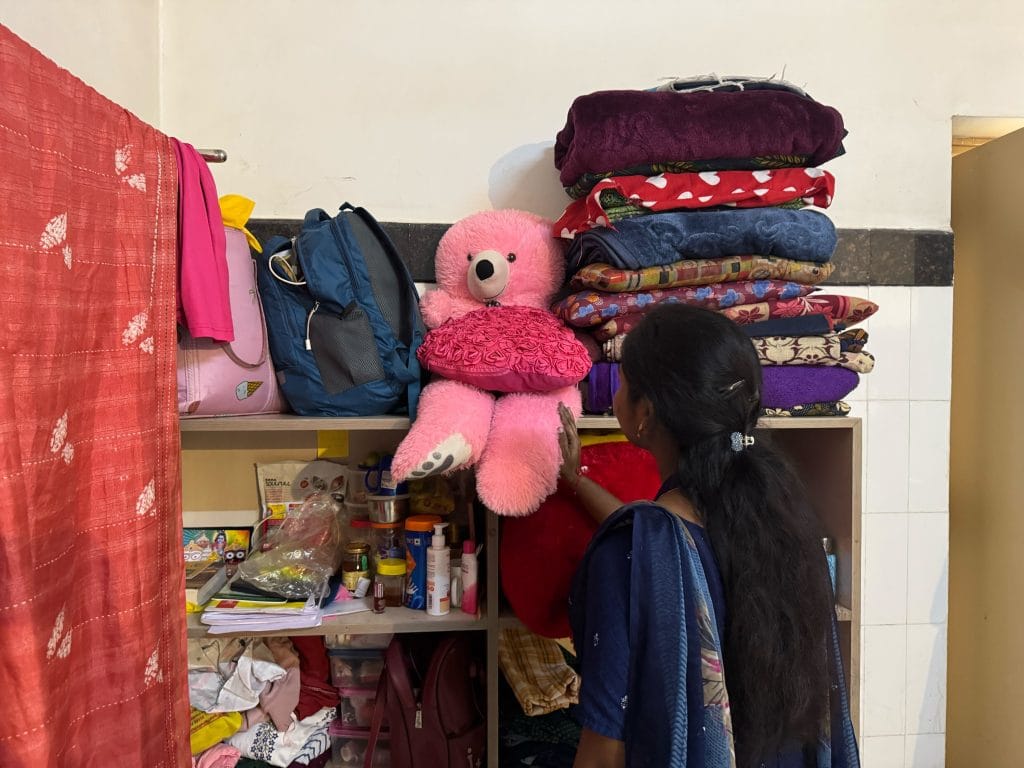
“I work closely with the new women recruits, particularly those from North India. I show them the campus, the hostel, and the classrooms. I want more women to join this mill as this is the only place where they can study and earn at the same time,” said Dalai, who now earns Rs 14,000 a month.
The eldest daughter in her family, Dalai sends half her salary home and saves the rest for future studies. She aspires to become an IAS officer one day.
“Once my graduation is complete, I’ll start taking classes for UPSC,” she said, flaunting the gold earrings she bought with her savings.
Dalai shares a hostel room with seven other women, and often goes on trips with them. The combination of financial independence and education has broadened her perspective about women’s role in society. So, she advises her fellow roommates to follow a golden mantra: marry second, earn and learn first.
“I was very conservative before, but now I believe in education and independence for women. I guess that’s why families don’t let women study—they fear that once women know their rights and their place in society, it will be difficult to cage them.”
However, not everyone shares Dalai’s excitement for Tamil Nadu. For some, it’s not a city of hope and education; it is the city of Ravan.
Also read:
Adapting, learning, hoping
When Swarnkanti from Odisha decided to join KPR Mill, her grandmother tried to dissuade her.
“When the offer came, my grandmother said, ‘How will you survive in the land of Ravanas? They are tall and well-built people whose language you won’t understand,’” said a giggling Swarnkanti, who grew up listening to stories about ‘ghosts’ of Tamil Nadu.
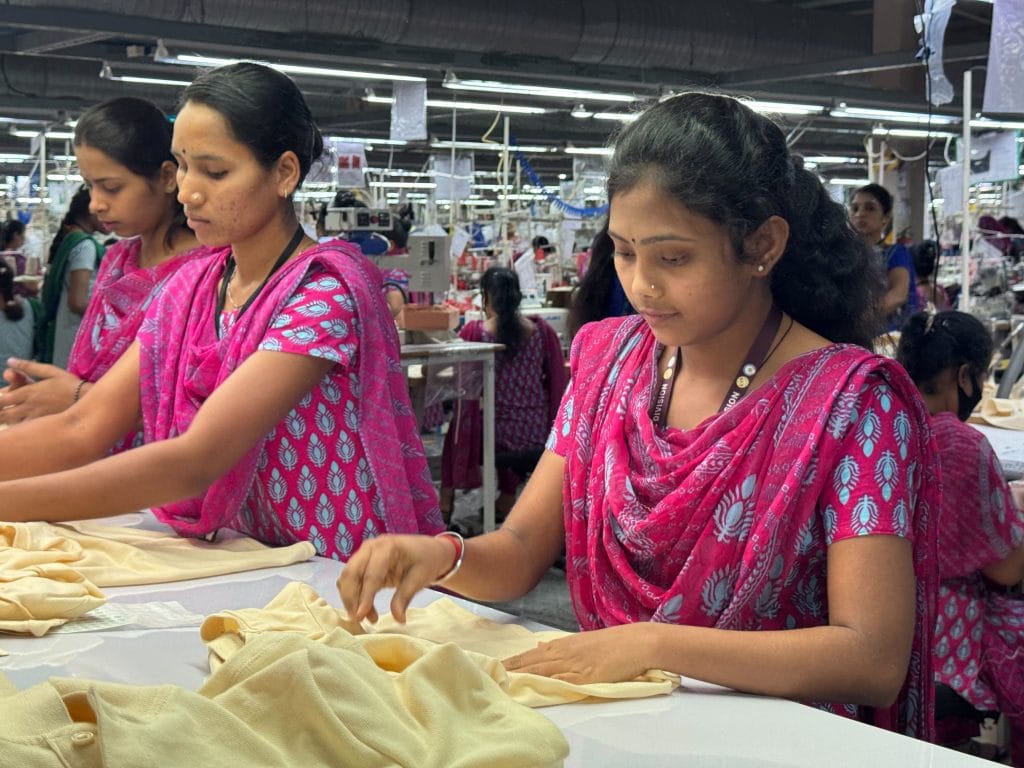
To her pleasant surprise, Tamilians were nothing like her grandmother’s descriptions. Learning the language, however, was difficult. For instance, when Swarnkanti’s senior at work asked her “Saapteengala (have you eaten)?” on her first day, she got scared thinking there was a saanp (snake) in the vicinity.
But Tamil classes at the mill helped her learn. It’s mandatory for workers from non-Tamil-speaking states to learn the basics of the language.
“We were made to learn the names of fruits, vegetables and basic Tamil words. And the rest we learned while listening to others talk,” said Swarnkanti, who is now fluent in Tamil. Although, when she was still learning the language, her bosses would try to make her feel comfortable by communicating in broken Hindi.
The daughter of a daily wage worker, education is a “big feat” for Swarnkanti. A quality inspector at the mill, her hands move swiftly through the clothes – checking for holes, sifting through sizes, and noting the destination country for each shipment. Like other young women at the mill, she considers owner and chairman KP Ramasamy a “father figure”.
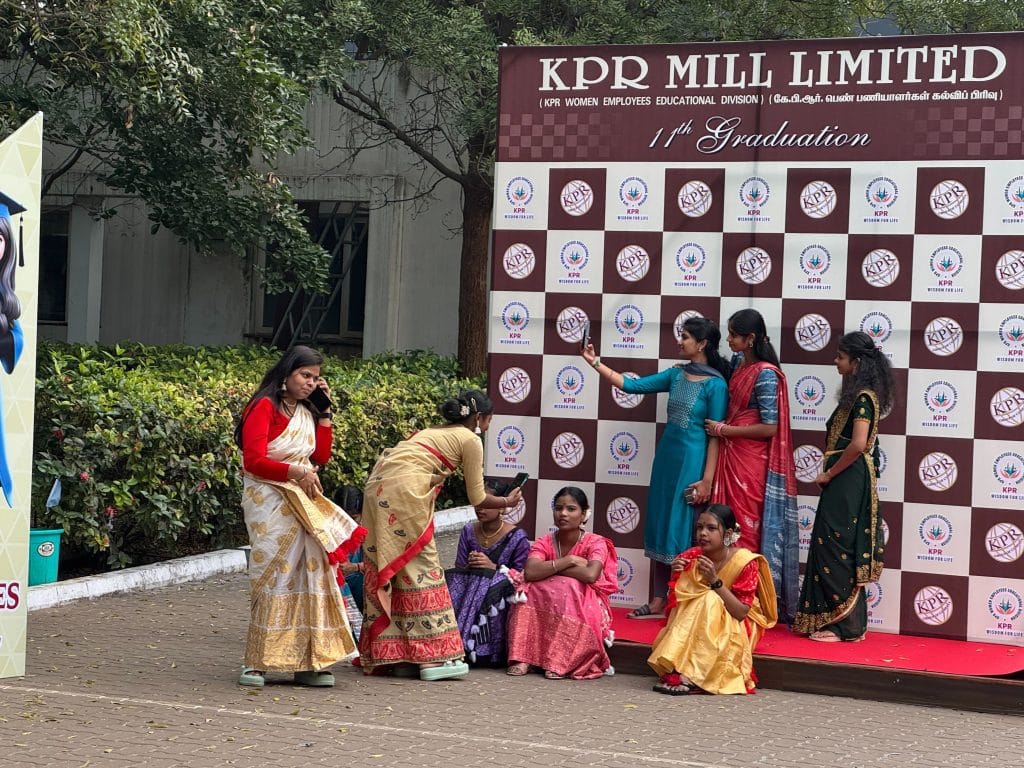
When Ramasamy visits the campus, the women at the mill screech and jump in excitement, shouting “Papa has come”.
“Isn’t he a father to us? Only a father could do this much for his daughters,” Swarnkanti said as five other women nodded in agreement. She will graduate in computers next year and plans to return to Odisha to teach.
One-of-a-kind business
Inside the mill, it’s a different world—Swarnkanti’s friends work in different departments, and only meet during evening classes. She and the others submit their phones and work until the clock strikes two. That’s when they head to the mess for lunch, savouring rice with generous toppings of sambar and rasam.
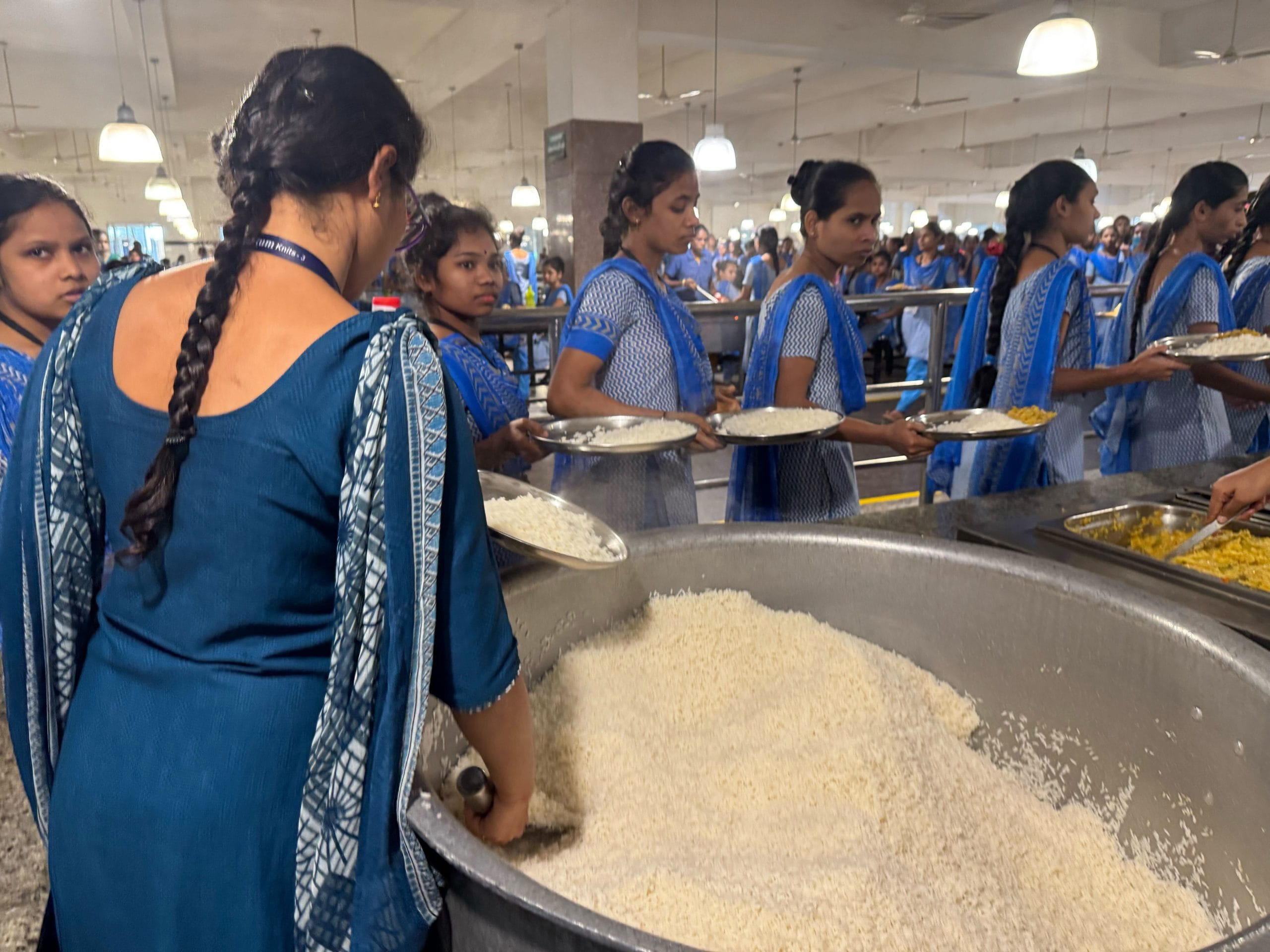
KPR has made its name in Tamil Nadu, particularly Tiruppur, for being a one-of-a-kind mill that has taken the education of its women workforce to an aspirational level. Last year, 194 employee-students secured placements in big organisations such as Tata Electronics, Tech Mahindra, and Titan. Apart from this, the mill runs its own coaching centre, the KPR IAS Academy, for UPSC aspirants. Last year, 11 students from this academy cleared the IAS exam, a senior official from KPR claimed. KPR also has its own engineering college, and an arts and science institute in Coimbatore.
The mill is more than just an educational hub. A textile powerhouse that exports clothes to over 60 countries and boasts a formidable presence in Europe, the United States, and Australia, it runs multiple industries under its banner. These comprise two sugar mills in Karnataka, and an Audi car dealership (Janhvi Motor Pvt. Ltd) in Coimbatore, among other businesses. Janhvi Motor alone sold 155 Audis last year, generating a revenue of Rs 102.34 crore, said a senior KPR official.
The businesses have a combined workforce of 32,000, of which 29,000 are women. They hire female workers through government-backed skill development programmes such as the Deen Dayal Upadhyaya Grameen Kaushalya Yojana (DDU-GKY), the Pradhan Mantri Kaushal Vikas Yojana (PMKVY), and various state-run skill development initiatives. These schemes, operating in states such as Odisha, Jharkhand, Chhattisgarh, Assam, Meghalaya, and Tripura, provide prospective workers with three-month training in weaving and knitting.
“So, when we lose women after graduation, we can hire new workers through these programmes who already have a basic understanding of the work we do here. Labour in India is not stagnant. There is poverty; people want to work. So labour is always flowing,” said a senior administrative official at the mill.
To support its in-house Women’s Employment Education Division, KPR makes a dedicated allocation under ‘employee welfare expenses’. The allocation is made with a portion of the organisation’s profits. Company officials, however, refused to disclose the exact amount dedicated to the programme.
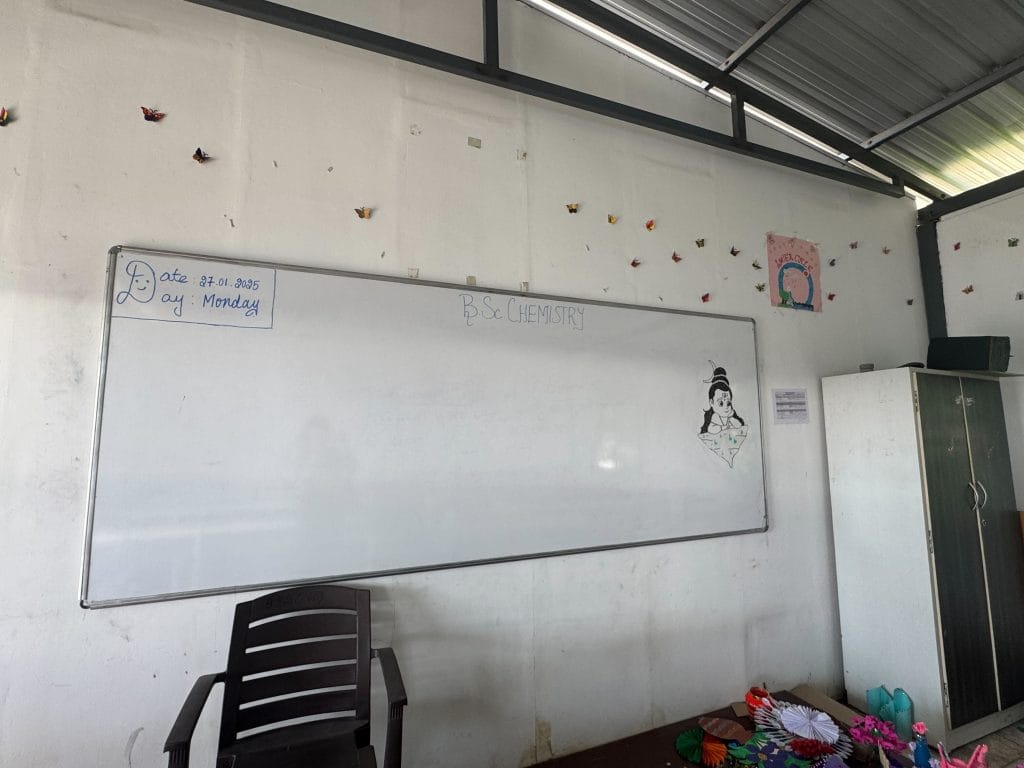
KPR Mill’s academic initiative has earned plaudits from leading names in the business world.
“Over 24,500 women, who once joined the mills due to poverty, have now earned degrees through a free education programme he [Ramasamy] introduced… When asked about losing employees to education, he says, “My job is to help them reach their potential, not keep them here forever,” wrote RPG Group’s Harsh Goenka in an X post, adding that Ramasamy has transformed “lives in a way few can imagine.”
No other textile mill in the Coimbatore-Tiruppur region is educating its women workers.
Executive Director Anandakrishnan recalled how his father was stopped at the Chennai airport by a former employee who was preparing to board a flight herself. Now working at an IT firm in Bengaluru, she thanked him for giving her the opportunity to pursue higher education.
“It made my father very happy. He felt that he had truly achieved something in life,” said Anandakrishnan.
It wasn’t just that young woman—several female workers at the mill daydream of a life that once seemed out of reach.
Also read:
Big dreams, bigger drive
Twenty-three-year-old Shruti Yadav from Agra has been working at the mill for over three years. Despite her parents’ insistence, she doesn’t want to move closer to home – to Delhi or another city in Uttar Pradesh. She has practical reasons for doing so: a similar job in Delhi, at a similar pay grade, would cut into her earnings due to a relatively high cost of living. While she earns only Rs 20,000, Shruti has managed to save Rs 1 lakh over three years in Coimbatore.
But the young woman has dreams bigger than Agra, the mill, and modest monthly savings. She wants to open her own fancy boutique and design clothes.
This drive to do more, and be a part of something bigger than herself, led Shruti to cross paths with Pranatee. They met three years ago during Shruti’s initial days at the mill, and bonded over speaking Hindi.
Now, their conversations extend beyond work and classes – such as a sexual harassment committee the staff is setting up. Pranatee attended a training session, and every woman at the mill, including herself, was eager to learn about her experience.
“There is an internal complaints committee where you can file a report if you are harassed, and your identity will be protected. No one can touch you, humiliate you, or harass you,” Pranatee told her wide-eyed colleagues. This redressal system is alien to many of them, after all. As Pranatee continued speaking, one woman interrupted her to ask if she could file a complaint against her abusive father.
“No, it’s limited to the academic campus,” another woman responded as some of her friends sniggered.
Meanwhile, Ashwani Naik sat quietly in a corner, lost in thought. Watching her seniors toss their caps at the convocation ignited something in her—next year, it would be her turn. She imagined herself in a “Tamilian saree”, with a gajra (flower garland) adorning her hair. Her plans, though, go beyond graduation in Coimbatore. She has already told her mother that she wants her to find a Tamil groom for her. Otherwise, she will find one herself.
(Edited by Zoya Bhatti)



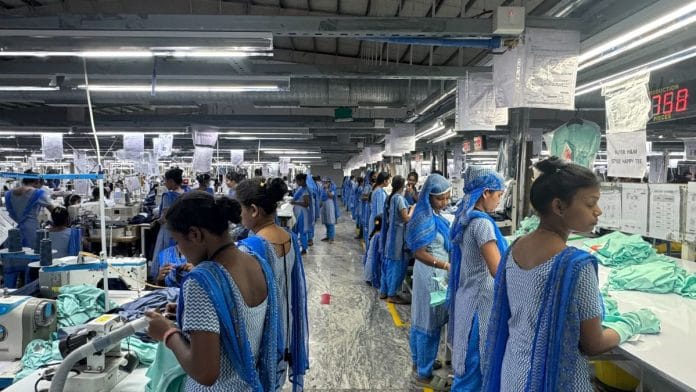



How to join
This is such a wonderful initiative! Thank you for highlighting it. Hope it inspires more companies to do the same for their employees!! A true expression of inclusive growth that Tamilian culture encourages.
These are the articles that can inspire and make a positive difference to the world. Thanks much for writing this. More power to you.